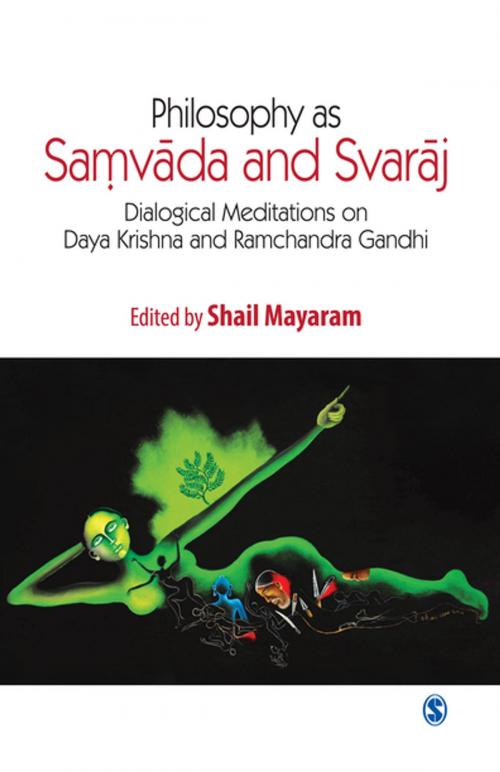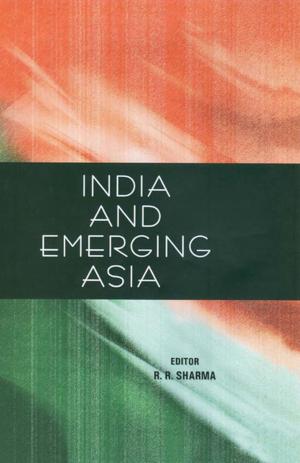Philosophy as Samvada and Svaraj
Dialogical Meditations on Daya Krishna and Ramchandra Gandhi
Nonfiction, Social & Cultural Studies, Social Science, Sociology, Religion & Spirituality, Philosophy| Author: | ISBN: | 9788132118251 | |
| Publisher: | SAGE Publications | Publication: | May 30, 2013 |
| Imprint: | Sage Publications Pvt. Ltd | Language: | English |
| Author: | |
| ISBN: | 9788132118251 |
| Publisher: | SAGE Publications |
| Publication: | May 30, 2013 |
| Imprint: | Sage Publications Pvt. Ltd |
| Language: | English |
Philosophy as Samvada and Svaraj discusses Daya Krishna and Ramchandra Gandhi’s respective intellectual contributions and speculates how one might take forward the work of the two persons who were among the most brilliant minds of our times.
Both Daya Krishna and Ramchandra Gandhi emphasized freedom and autonomy of thought and upheld the importance of samvada, somewhat inadequate in its English translation as dialogue. And both of them were philosophers concerned with how philosophy might seek its svaraj, free from the orientalist hold of the religious, the colonial crippling of indigenous languages and institutions and the structures and categories of un-freedom that continue to haunt inhabitants of West and non-West. Philosophy must involve samvada—an open dialogue and intimate encounter between self and other. Both philosophers experimented with these concepts and were enormously creative.
This book is a testament not only to the core values of philosophy, but also to how these values can be carried forward by new weaves of tradition and modernity.
Philosophy as Samvada and Svaraj discusses Daya Krishna and Ramchandra Gandhi’s respective intellectual contributions and speculates how one might take forward the work of the two persons who were among the most brilliant minds of our times.
Both Daya Krishna and Ramchandra Gandhi emphasized freedom and autonomy of thought and upheld the importance of samvada, somewhat inadequate in its English translation as dialogue. And both of them were philosophers concerned with how philosophy might seek its svaraj, free from the orientalist hold of the religious, the colonial crippling of indigenous languages and institutions and the structures and categories of un-freedom that continue to haunt inhabitants of West and non-West. Philosophy must involve samvada—an open dialogue and intimate encounter between self and other. Both philosophers experimented with these concepts and were enormously creative.
This book is a testament not only to the core values of philosophy, but also to how these values can be carried forward by new weaves of tradition and modernity.















